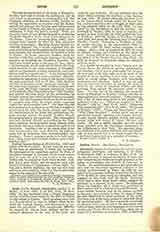

Jouvancy, JOSEPH DE (JOSEPHUS JUVENCIUS), poet, pedagogue, philologist, and historian, b. at Paris, September 14, 1643; d. at Rome, May 29, 1719. At the age of sixteen he entered the Society of Jesus, and after completing his studies he taught grammar at the college at Compiègne, and rhetoric at Caen and La Flèche. He made his profession at the latter place in 1677 and was afterwards appointed professor at the Collège Louis-le-Grand at Paris. In 1699 he was called by his superiors to Rome to continue the history of the Society of Jesus begun by Orlandini, and was engaged on this work until his death. Jouvancy wrote largely upon those topics which engaged his attention as a member of the order. He composed about ten tragedies, all of which were published at Paris, and several of which were frequently acted. It is not certain, however, that all the dramas ascribed to Jouvancy were written by him, for some of them are also attributed to other members of the order. Jouvancy also wrote many poems in Latin and Greek for special occasions. He had a masterly knowledge of classical Latin and procured the translation into Latin of many works in other languages, as the funeral oration over Prince Henri de Bourbon, oldest son of Louis XIV, delivered in December, 1683, at Paris by the celebrated pulpit orator Bourdaloue; “Cleander et Eudoxius”, a translation of the “Entretiens de Cleandre et d’Eudoxe” of Father Daniel. This latter work is a refutation of the accusations brought against the Society of Jesus by its enemies; in 1703 it was put on the Index. The translation of the theological letters of Father Daniel to the Dominican Father Alexander Natalis contains a comparison of the teachings of St. Thomas and of the theologians of the Society of Jesus concerning Probabilism and its relation to Divine grace. In 1704 appeared Jouvancy’s “Appendix de Diis et heroibus poeticis”, a widely read work which was a translation of Father Gautruche’s “Histoire poétique pour l’intelligence des poètes et auteurs anciens”. Jouvancy also translated into Latin biographies, written by other Jesuits, of the saints of the order, St. Stanislaus Kostka and St. John Francis Regis.
Jouvancy edited a large number of school editions of Latin authors. The text was always revised suitably to school use, was altered in many places with classical elegance, and supplied with learned foot-notes, partly explanatory of the details given by the author, partly on the style and grammatical construction; these editions were frequently reissued both in France and other countries. To some of the later editions translations were added. Worthy of special praise were the editions of the “Comedies” of Terence, the “Odes” and “Liber de arte poetica” of Horace, the “Epigrams” of Martial, the “Metamorphoses” of Ovid, the philosophical writings of Cicero, as “De officiis”, “Cato Major”, and “Laelius”. Jouvancy’s “Institutions poeticae”, published in 1718 and often reprinted, was another work intended for use in teaching. A number of editions also appeared of his “Novus apparatus graeco-latinus, cum interpretation gallica”. This work, based on Isocrates, Demosthenes, and the leading Greek authors, was not only much superior to the lexicons then used, but was also intended to encourage the cultivation of the mother-tongue, as well as the study of the two classical languages. Jouvancy also delivered many orations and eulogies, for example on Louis XIV his family, and his government, in externals so brilliant for France, on the churches of Paris and the French nation. These were published in two volumes and from 1701 frequently reprinted.
A work of special importance was Jouvancy’s “Christianis litterarum magistris de ratione discendi et docendi” (Paris, 1691). In 1696 he was commissioned by the Fourteenth Congregation of the Society to adapt this work as a guide and method for the classical studies of the members of the Society. After careful examination of the manuscript by a commission of the order, it was published at Florence in 1703 as an official textbook under the title: “Magistris scholarum inferiorum Societatis Jesu de ratione discendi et docendi”. This edition was the basis of all later ones. In this pioneer work Jouvancy took the first steps in the method for the study of philology which was developed by the great investigators of antiquity of the nineteenth century at the German universities. Latin is and remains the central point of instruction, even though Greek and the historical branches are not neglected. The art of the teacher may be separated into two main divisions: by the example of his own piety and virtue the teacher is to lead the pupil to the knowledge and service of the Creator; he is to bring the pupil to apply himself to his actual studies by fear of humiliation and an honorable spirit of competition. The principles of the “De ratione discendi et docendi” were used as a standard in all the Jesuit colleges of the German assistance.
After he was called to Rome, Jouvancy labored on the second half of the fifth part of the history of the Society of Jesus, which embraced the period 1591-1616. The work was forbidden in France by decrees of Parlement of February 22 and March 24, 1715, because it expressed opinions contravening the royal rights of sovereigns, that is, opposing the royal absolutism of the Bourbons. In Rome as well the work was placed in part on the Index by decree of July 29, 1722, because in some passages it contradicted the papal decree “De ritibus Sinensibus” quibus deletis liber permittitur (which being destroyed, the book is permitted). According to documents in the archives of the order this part of Jouvancy’s book was written before the publication of the papal decree (Reusch, “Index der verbotenen Bucher”, 2 vols., I, Bonn, 1885, 772 sq.).
KARL HOEBER

